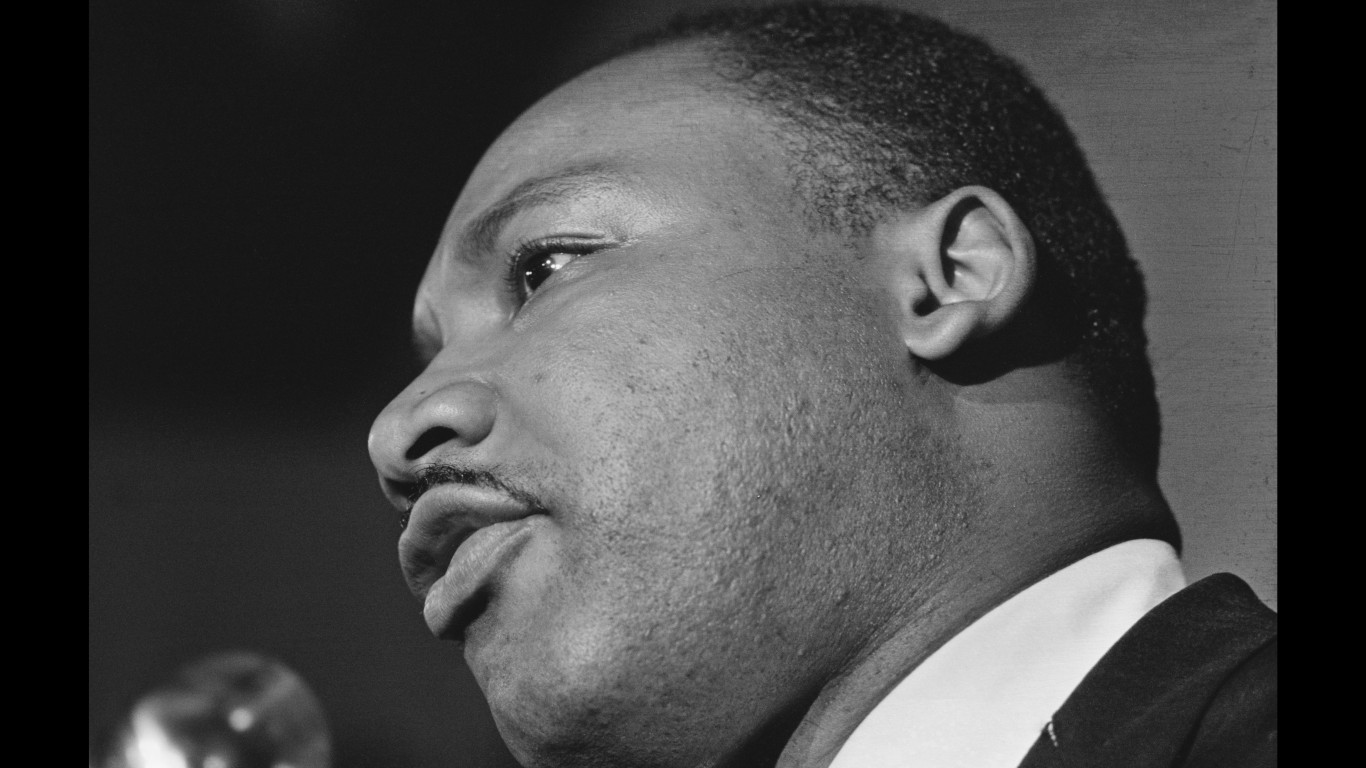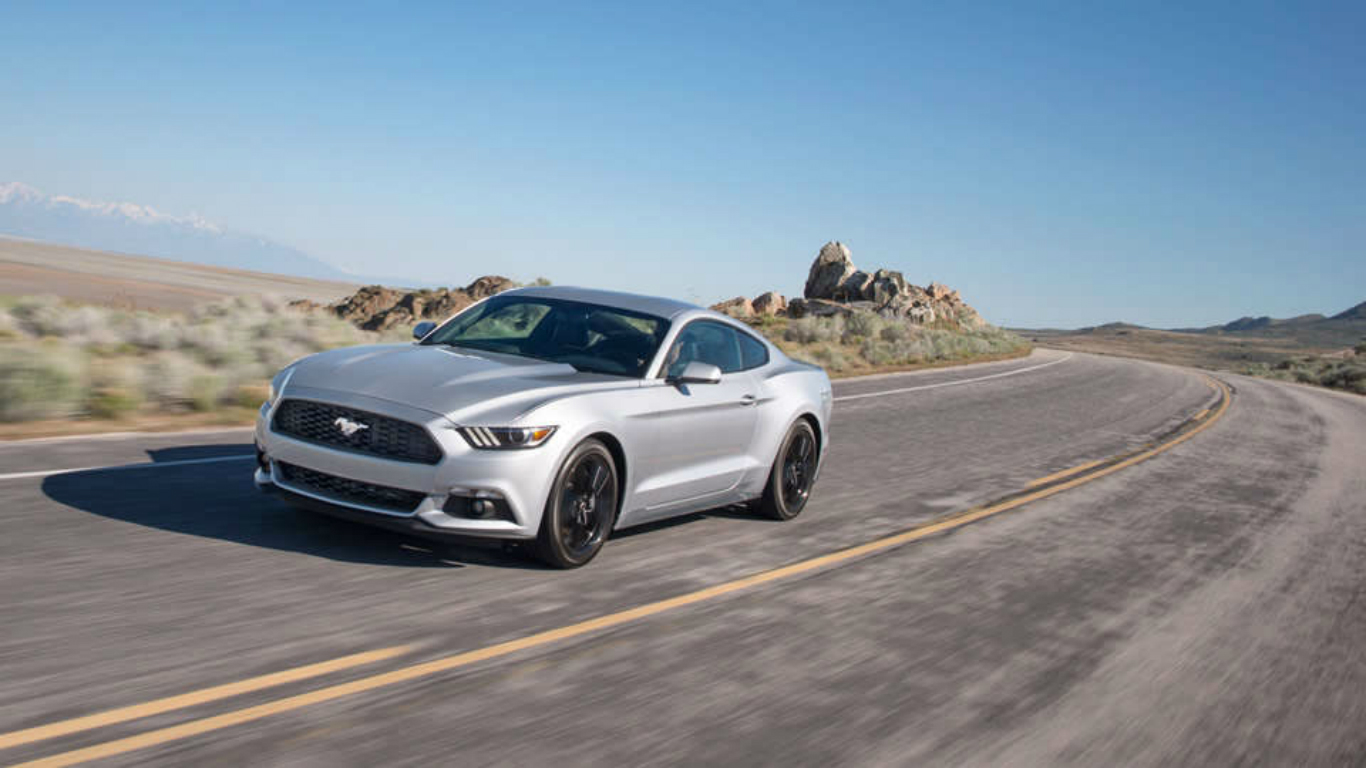
American, European, and Asian car makers have produced hundreds of car models since car manufacturing became a big business at the turn of the 19th century. Only 27 models, however, have been in continuous production for more than 40 years.
These long-lasting car models have endured wars, energy crises, tightened emission controls, and the fickleness of the car-buying public, embedding themselves in modern culture in the United States and other countries. They’ve achieved longevity thanks to their reputation for reliability, value, fuel economy, and the ability to adjust to shifting tastes. They managed to avoid the fate of Ford’s Edsel, one of the greatest product flops of all time, and because of that failure, one of the most iconic cars in history.
Timing is an important contributing factor to the long-term success of certain models. Fuel-efficient vehicles such as the Honda Civic arrived on U.S. shores in the 1970s, about the same time as the oil crisis increased the demand for fuel-economy cars. Ford executive Lee Iacocca anticipated the cultural appeal of the sporty Mustang in 1964, as the youth culture became ascendent and the consumer economy shifted into higher gear.
Many of these enduring car models, such as the Volkswagen Beetle in “The Love Bug,” also became one of the most iconic cars in films.
24/7 Wall St. has compiled a list of the longest-running car models by reviewing stories and data from a variety of sources, including roadandtrack and motortrend.com to create our list.
Nearly all of these models are owned by automobile manufacturers that themselves have stood the test of time — Ford, General Motors, Volkswagen, Toyota, Honda, and BMW. The models and car brands have been lucky to have survived, unlike former Jeep owner AMC, one of the many famous car brands that no longer exists.
For some cars, success can be a double-edged sword. Honda’s best selling models, the Accord and the Civic, are also popular among car thieves in states like California, Connecticut, Massachusetts, and Maryland.
Click here to read about the longest running car models.
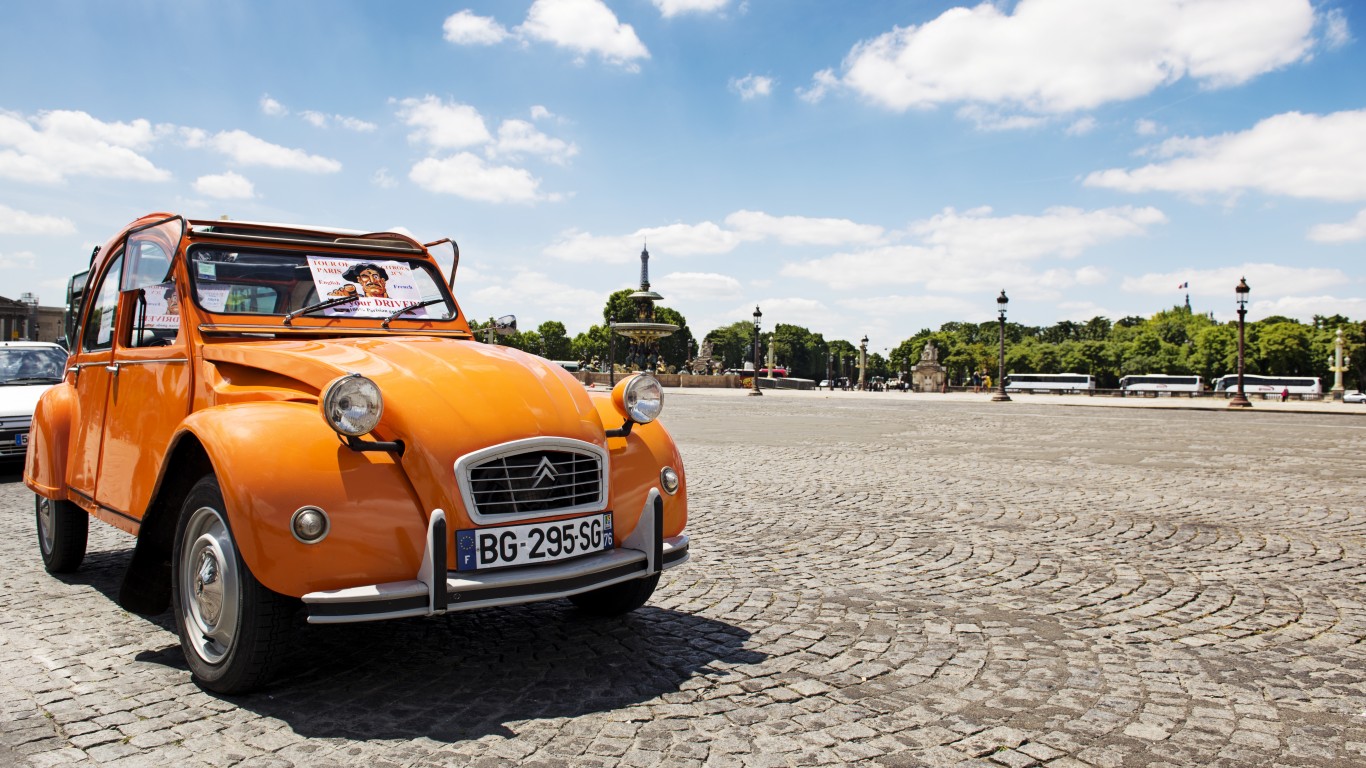
27. Citroën 2CV
> Years in production: 1949-1989
> Type: Economy car
Pierre-Jules Boulanger, a French engineer who ran the Citroën company from 1935 until his death in 1950, envisioned an economical car for the masses. The air-cooled, four-speed 2CV was well received by the media for how easily it handled and for its durability. More than 5 million were built before production ceased in 1989.
[in-text-ad]
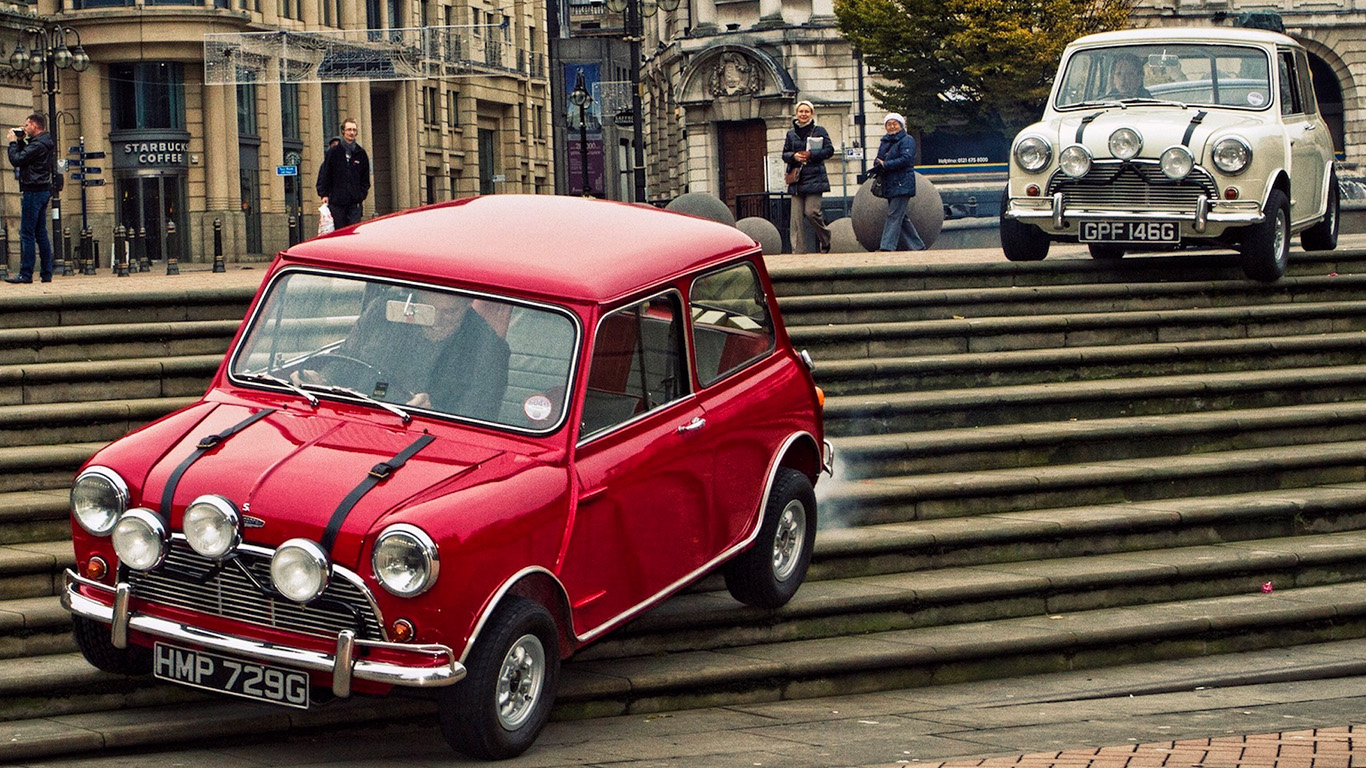
26. Mini
> Years in production: 1959-2000
> Type: Subcompact car
The Mini was introduced as a gas-conserving option for British motorists in the wake of the Suez Canal crisis in 1956 that restricted the flow of gasoline to Great Britain. The compact car with a water-cooled four-cylinder engine — considered the consummate city car — was immortalized in a zany chase scene involving the heist of gold in the movie “The Italian Job” in 1969. A Mini with a refreshed design was rebranded and relaunched in 2001 by BMW.
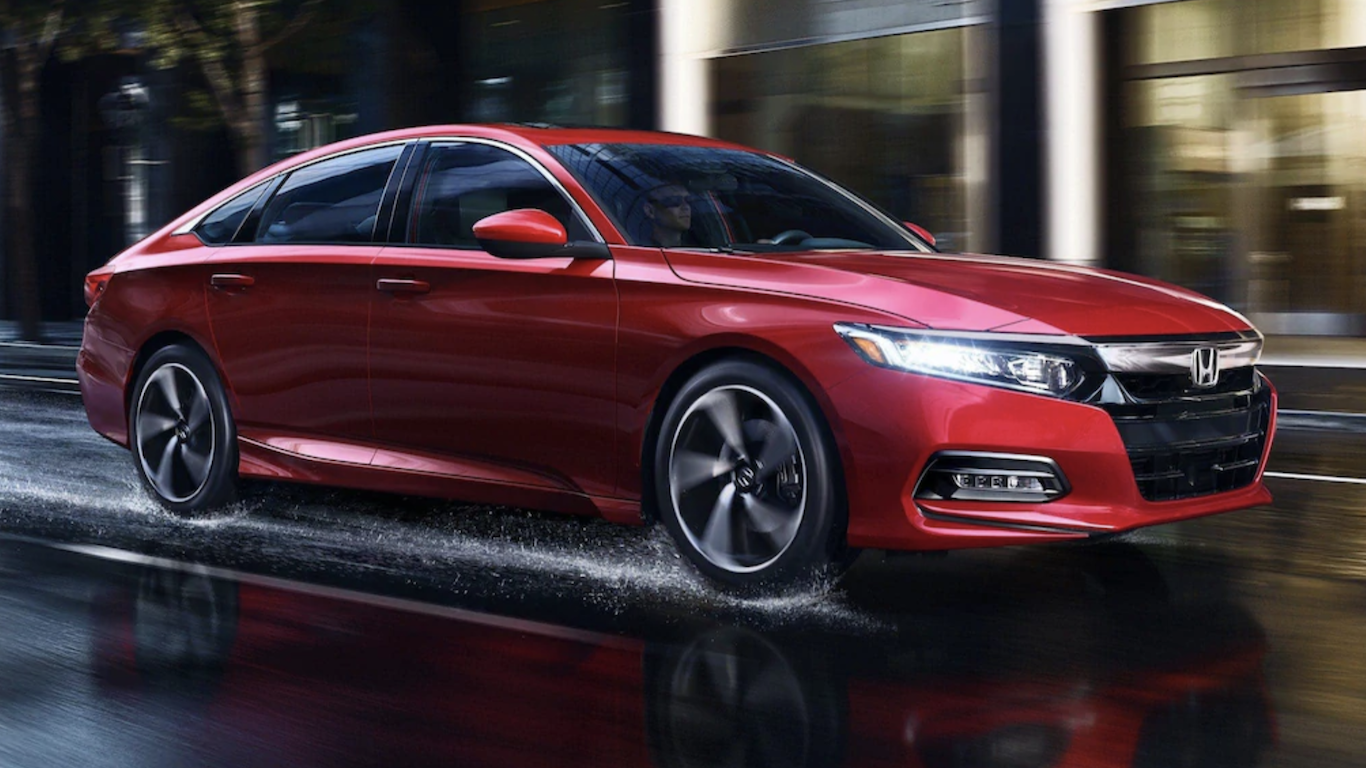
25. Honda Accord
> Years in production: 1976-present
> Type: Sedan
Aiming to achieve harmony between people and the automobile during the oil crisis of the 1970s, Honda named its new sedan Accord. The Accord was introduced as a compact car in the mid-1970s but was a step up from Honda’s smaller Civic model. It has since grown to become a midsize sedan.
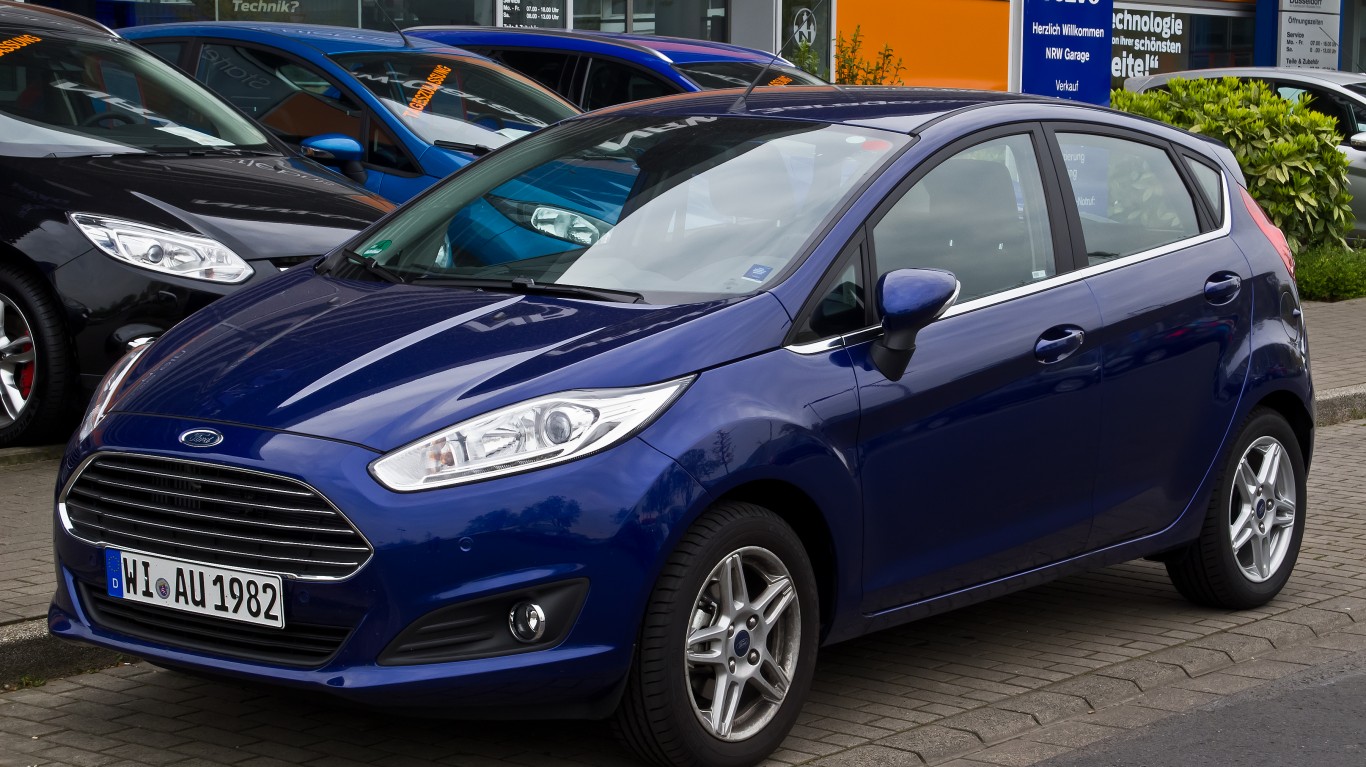
24. Ford Fiesta
> Years in production: 1976-present
> Type: Subcompact sedan
Ford had been contemplating a small-car foray into the European market since at least 1969 and produced the Fiesta in 1976. There have been seven generations of the vehicle.
[in-text-ad-2]
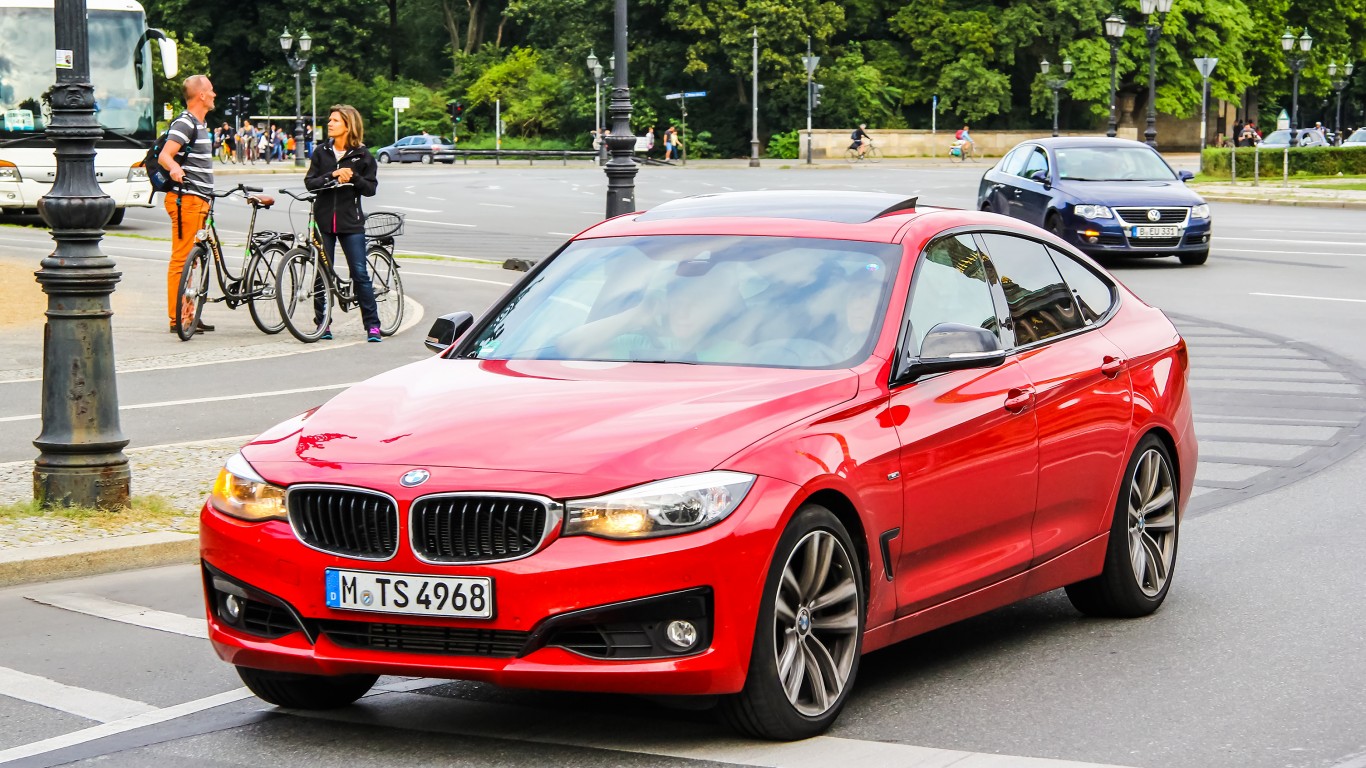
23. BMW 3
> Years in production: 1975-present
> Type: Luxury small car
The popular BMW 3 Series, a luxury sport sedan, came to the United States in 1976. A year earlier, it was unveiled at Munich’s Olympic Stadium as the successor to the BMW 02 Series. The BMW 3 Series is now into its seventh generation.
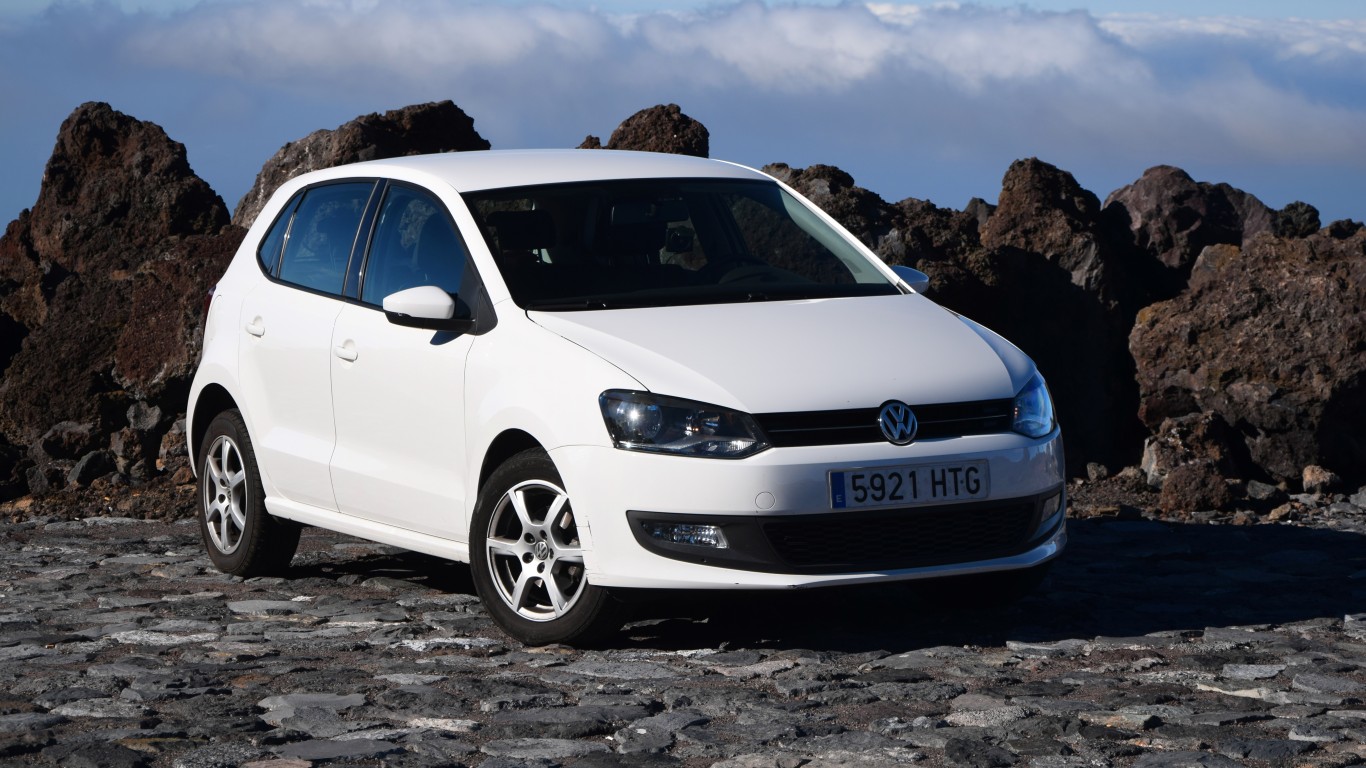
22. Volkswagen Polo
> Years in production: 1975-present
> Type: Hatchback and sedan
The Polo is one of three basic models of the Volkswagen, along with the Golf and the Passat. The Polo answered the demand for economical vehicles in the wake of the oil crisis of the 1970s. The sixth generation of Polos, praised for the durability and quality, hit the market in 2017.
[in-text-ad]
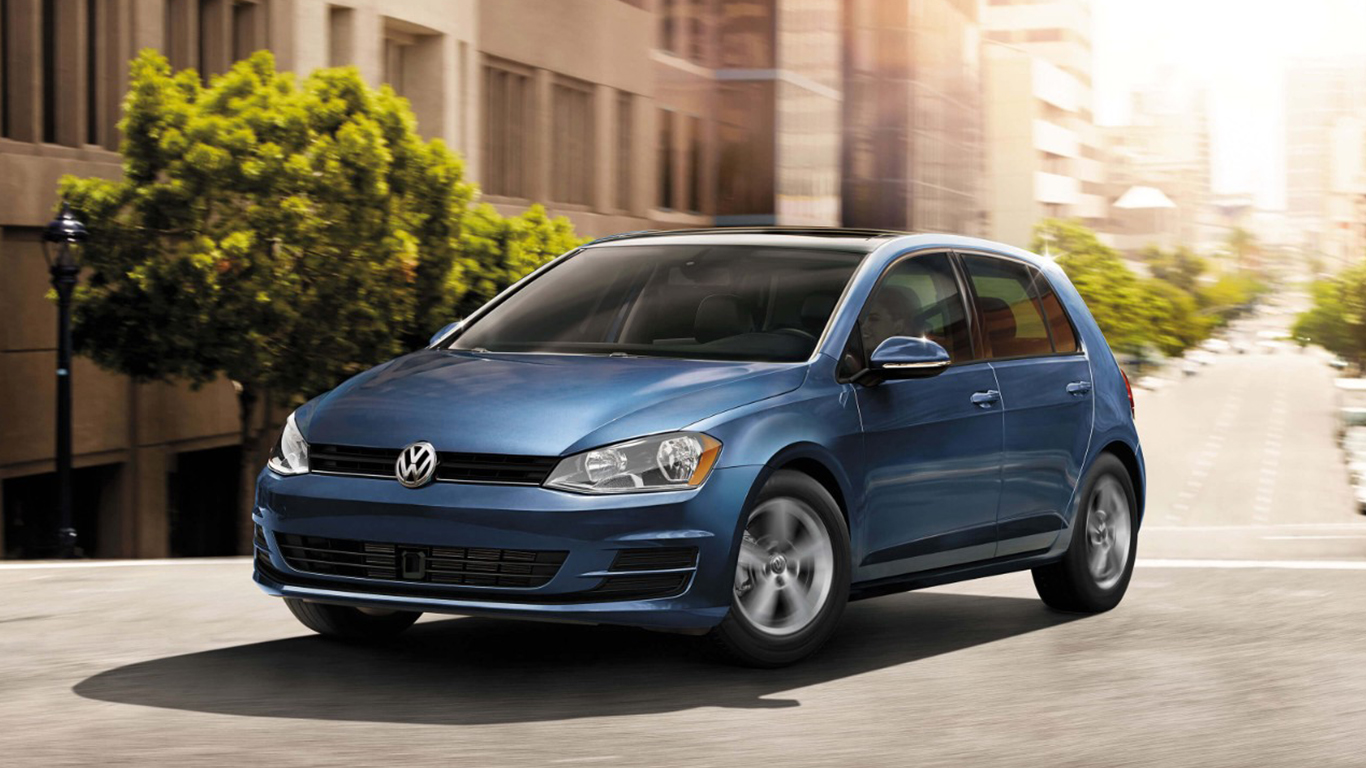
21. Volkswagen Golf
> Years in production: 1974-present
> Type: Compact car
The Golf was introduced to the U.S. market under the name Rabbit and had that name until 1985 as a replacement for the iconic Beetle. Unlike the Beetle, the Golf had front-wheel drive, and it was a hatchback. It was an immediate hit with American car buyers, selling 1.5 million cars in its first generation. Today, the Golf can be purchased as a wagon, the Golf R. The Golf is nearing the end of its seventh generation, and an all-new model is scheduled to be introduced for the 2020 model year.
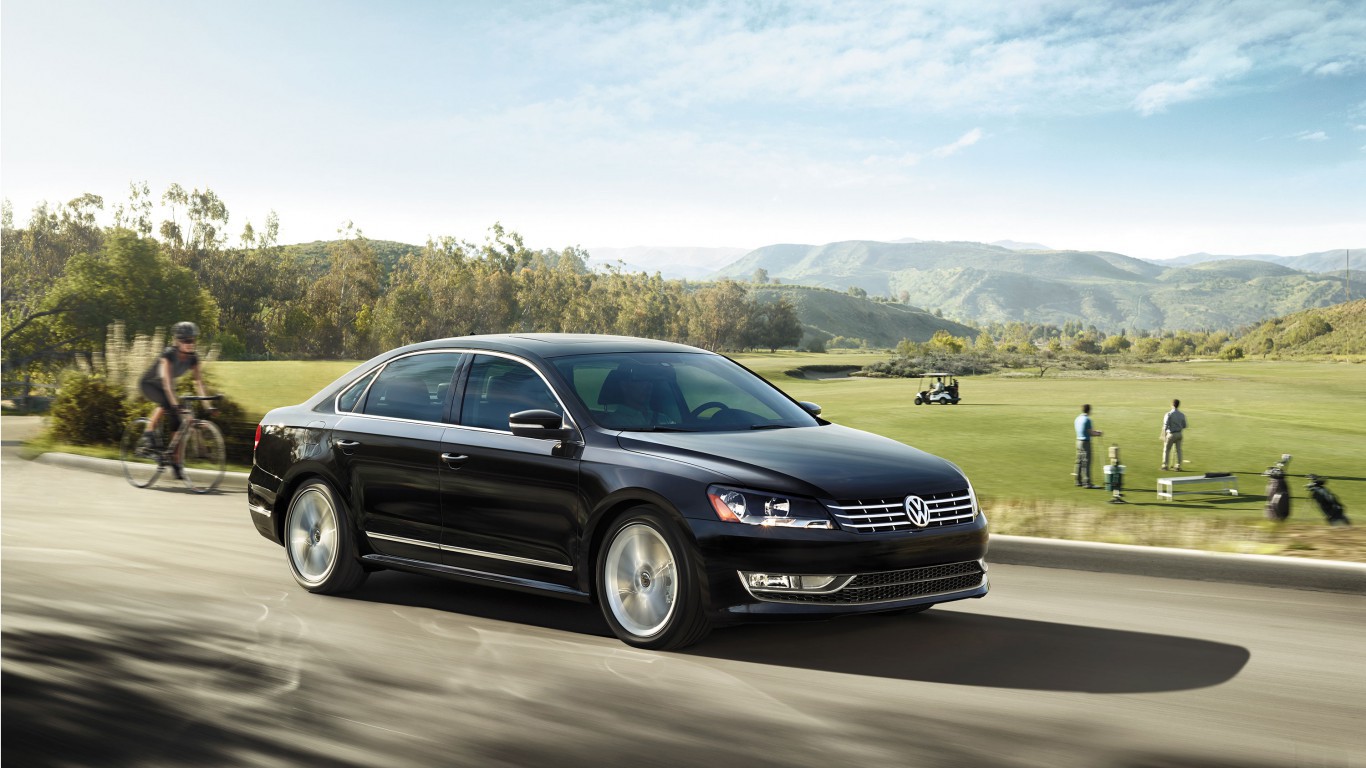
20. Volkswagen Passat
> Years in production: 1973-present
> Type: Mid-size car
The Passat, first produced in 1973, is still one of the best selling cars in Europe. The Passat, designed by famed car designer Giorgetto Giugiaro, has been considered a large family car, but it has evolved into a midsize sedan. The first-generation Passat sold 2.5 million units in the United States. The Passat NMS (New Midsize Sedan) won the Motor Trend Car of the Year award in 2012.
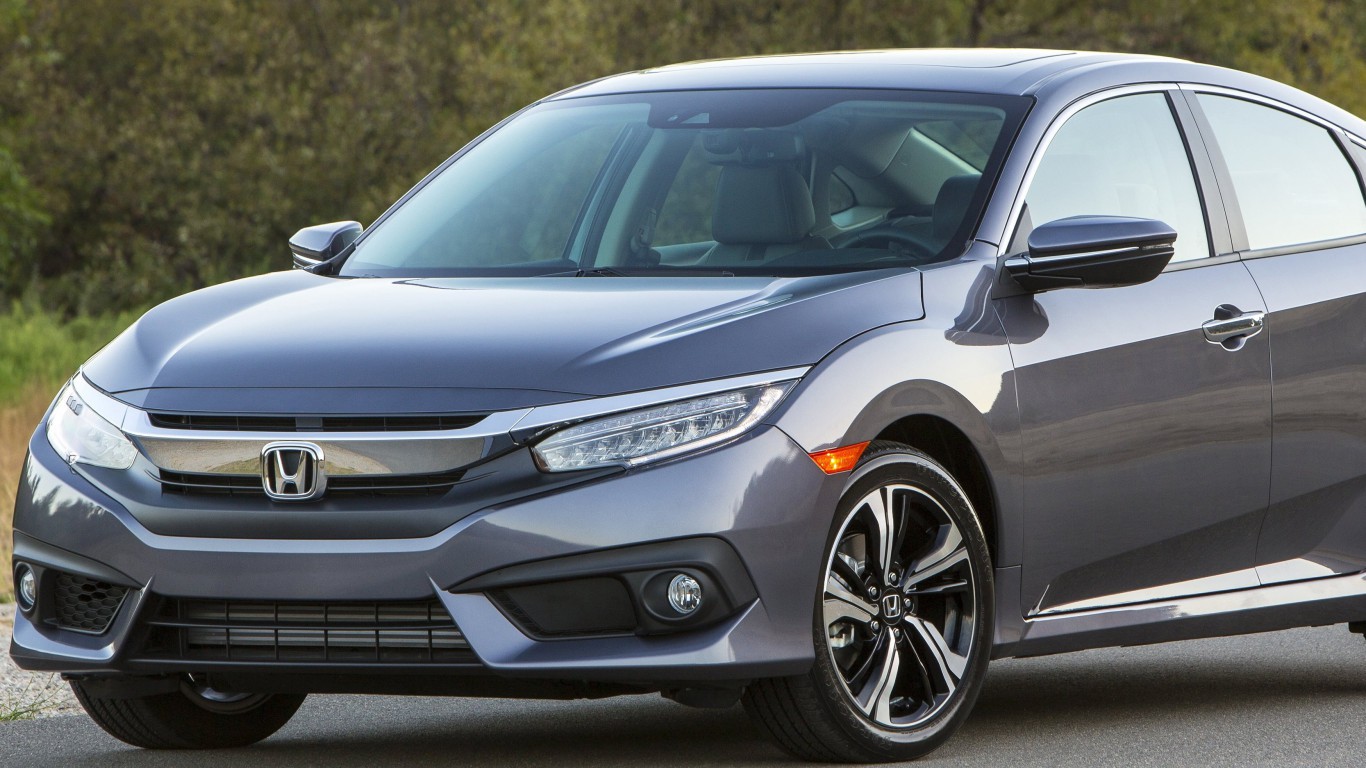
19. Honda Civic
> Years in production: 1972-present
> Type: Compact car
The Civic, now in its 10th generation has been a compact car staple since it arrived in the United States around the time of the oil crisis as an inexpensive transportation option. There have been various kinds of Civics, including four-door sedans and two-door hatchbacks. About 20 million Civics have been sold in the United States, a testament to the car’s reliability, low price, and fuel efficiency. Unfortunately, the Civic and big brother Accord are also very popular with car thieves.
[in-text-ad-2]
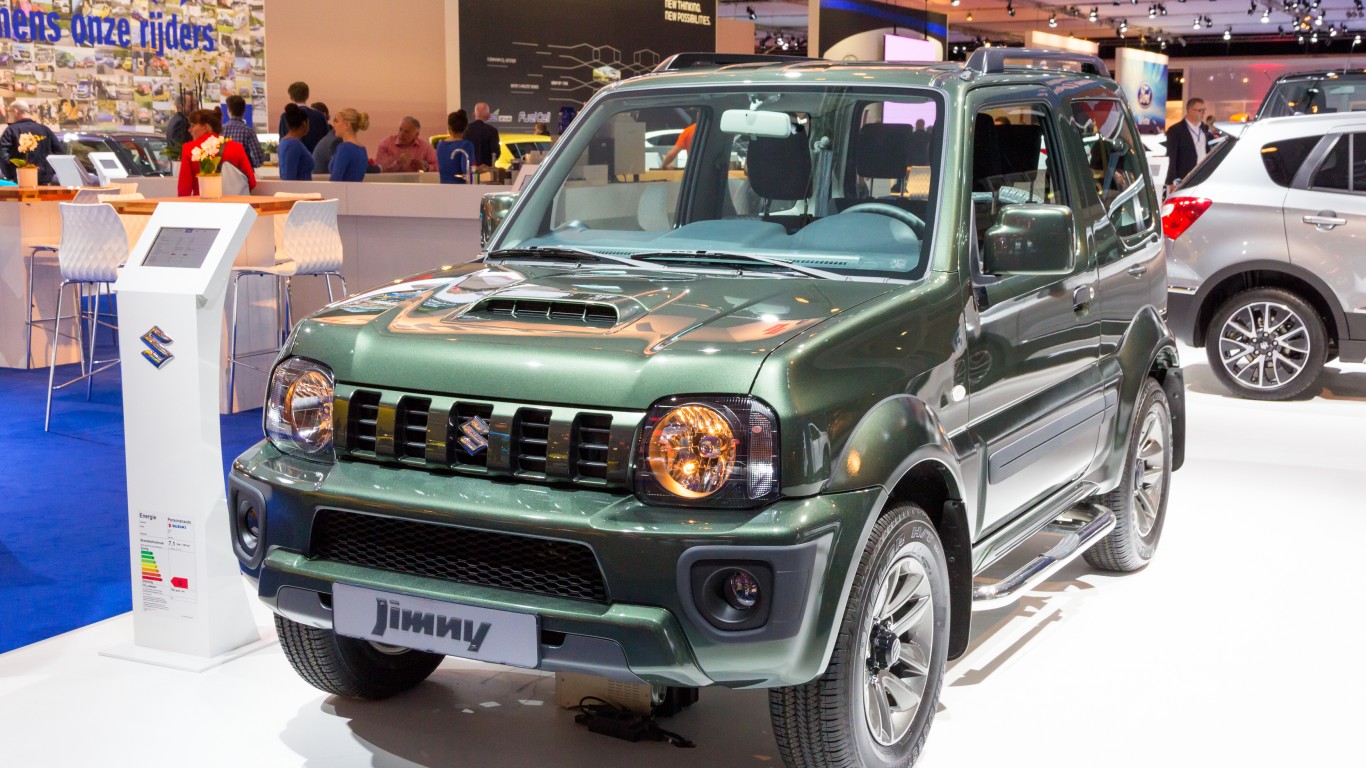
18. Suzuki Jimny
> Years in production: 1970-present
> Type: Mini SUV
The Suzuki Jimny helped pave the way for sports utility vehicles and has been popular with car buyers because of its Tonka-toy looks and ability to handle rugged terrain. Today’s fourth-generation of the vehicle seems somewhat similar to the Mercedes-Benz G Class. The Japanese-made car is sold in 194 countries,
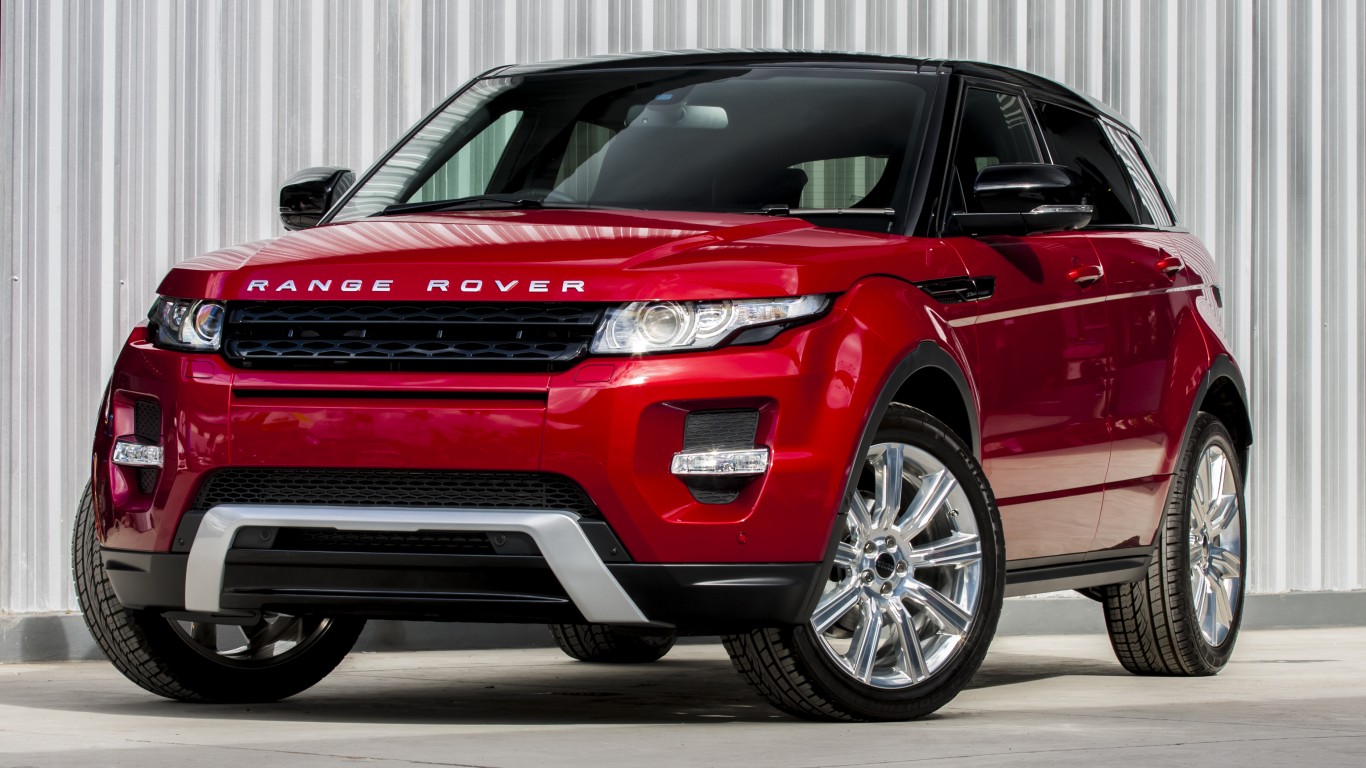
17. Range Rover
> Years in production: 1970-present
> Type: Luxury SUV
The all-terrain Range Rover is an enduring SUV and an icon of the British automotive industry. To keep the prototype under wraps, the designers gave it the name Velar, taken from the Italian word “velare,” which means veil. The original Range Rover was considered a work of art and displayed at the Louvre in Paris in 1970.
[in-text-ad]
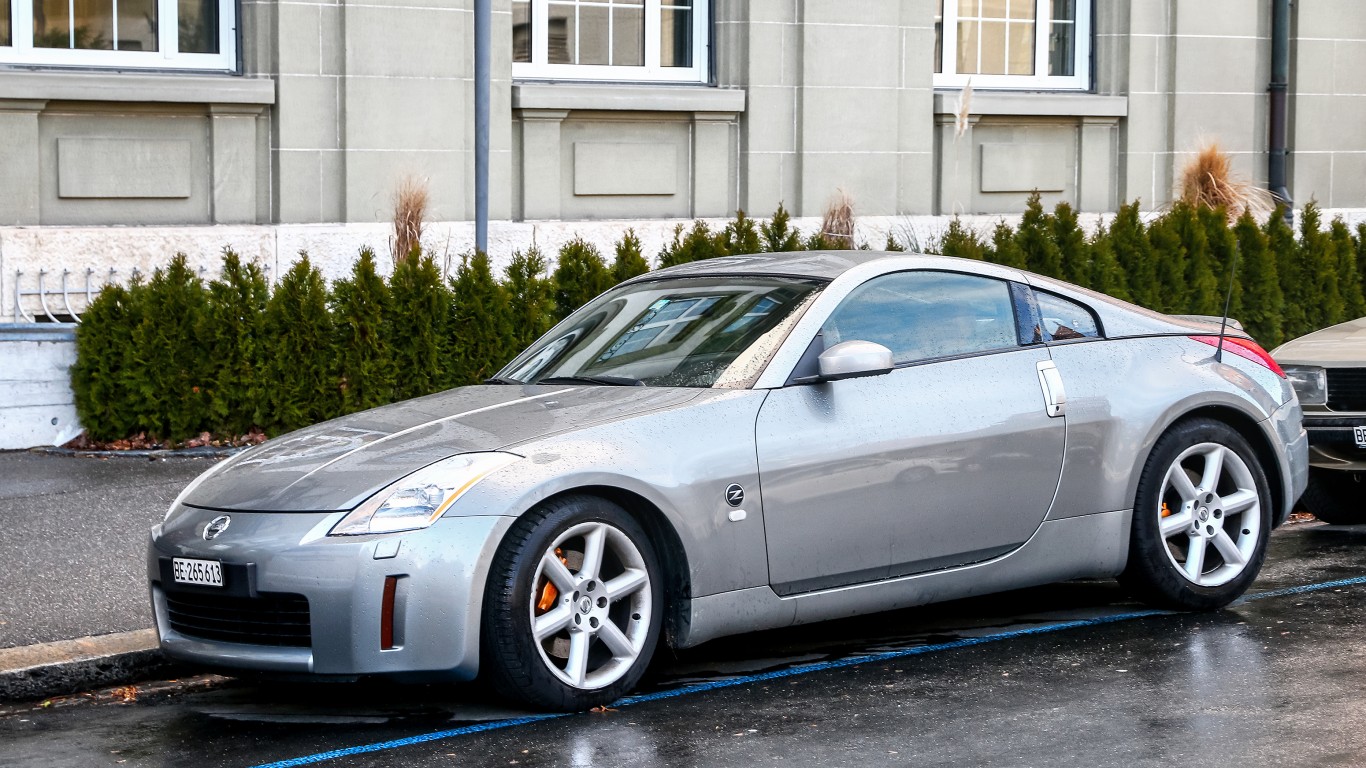
16. Nissan Z Car
> Years in production: 1969-present
> Type: Sports car
The Nissan Z Car changed Americans’ minds about Japanese cars as second-rate, utilitarian modes of transportation when it was introduced in the U.S. market in 1970 first by Nissan predecessor nameplate Datsun. It distinguished itself on the racetrack, and its styling and performance made it the choice of celebrities such as Paul Newman. The car has made appearances in numerous motion pictures.
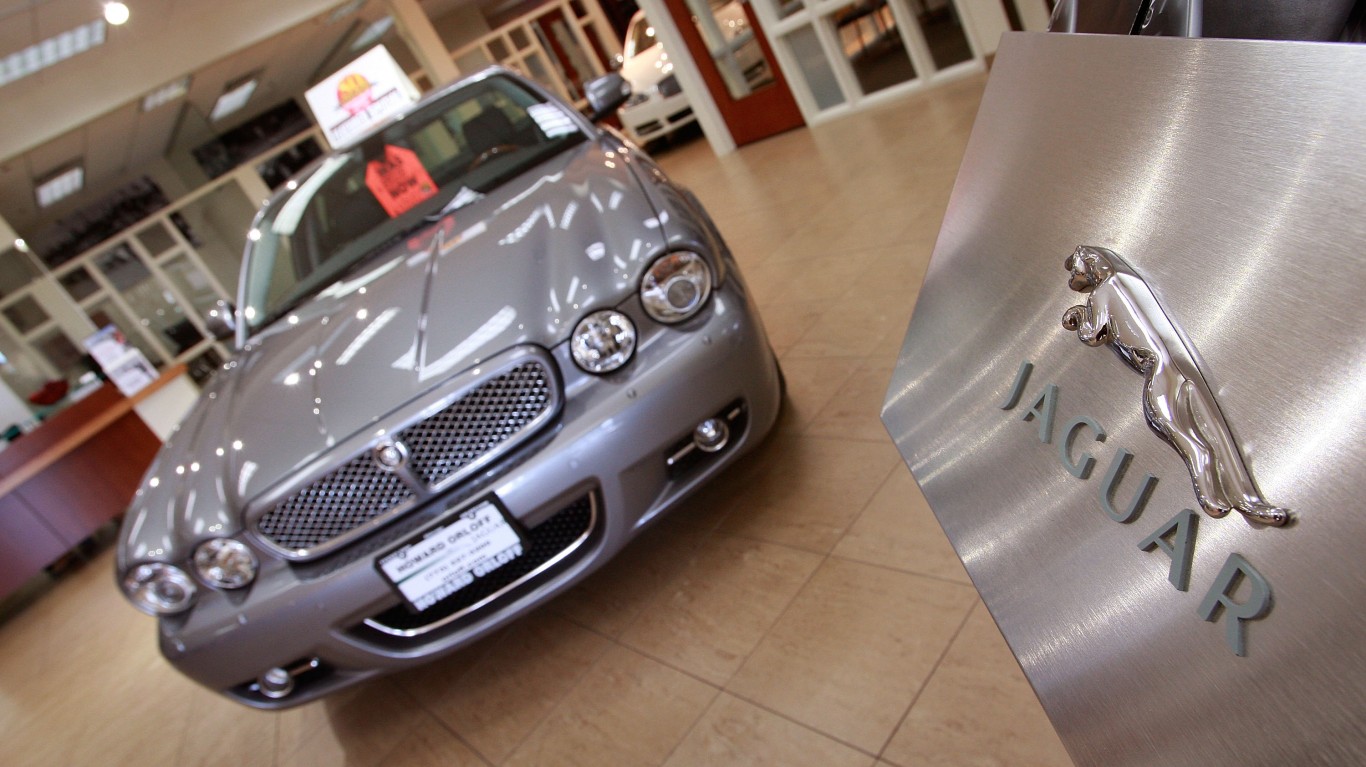
15. Jaguar XJ
> Years in production: 1968-present
> Type: Luxury sedan
The elegant and luxurious Jaguar XJ is the symbol of British automotive prowess and is now in its eighth generation — perhaps its last. Jaguar Land Rover, the parent of Jaguar XJ, announced earlier this month that it is ending production of the vehicle after 51 years. The British automotive press speculates that the car might be brought back as a battery-electric car.
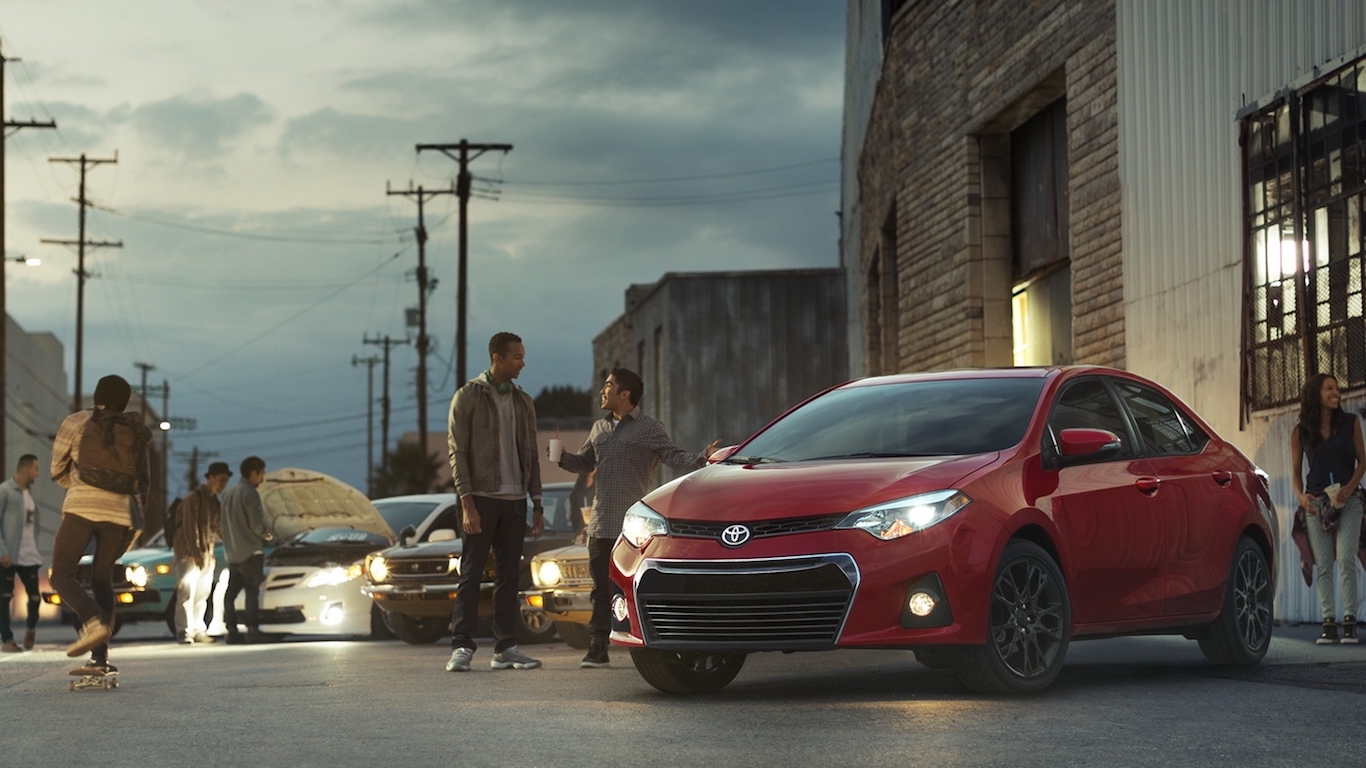
14. Toyota Corolla
> Years in production: 1966-present
> Type: Compact car
One of the car industry’s most-enduring success stories, the dependable and affordable Corolla, is now in its 12th generation. It is the biggest selling vehicle of all time, with more than 40 million sold worldwide.
[in-text-ad-2]
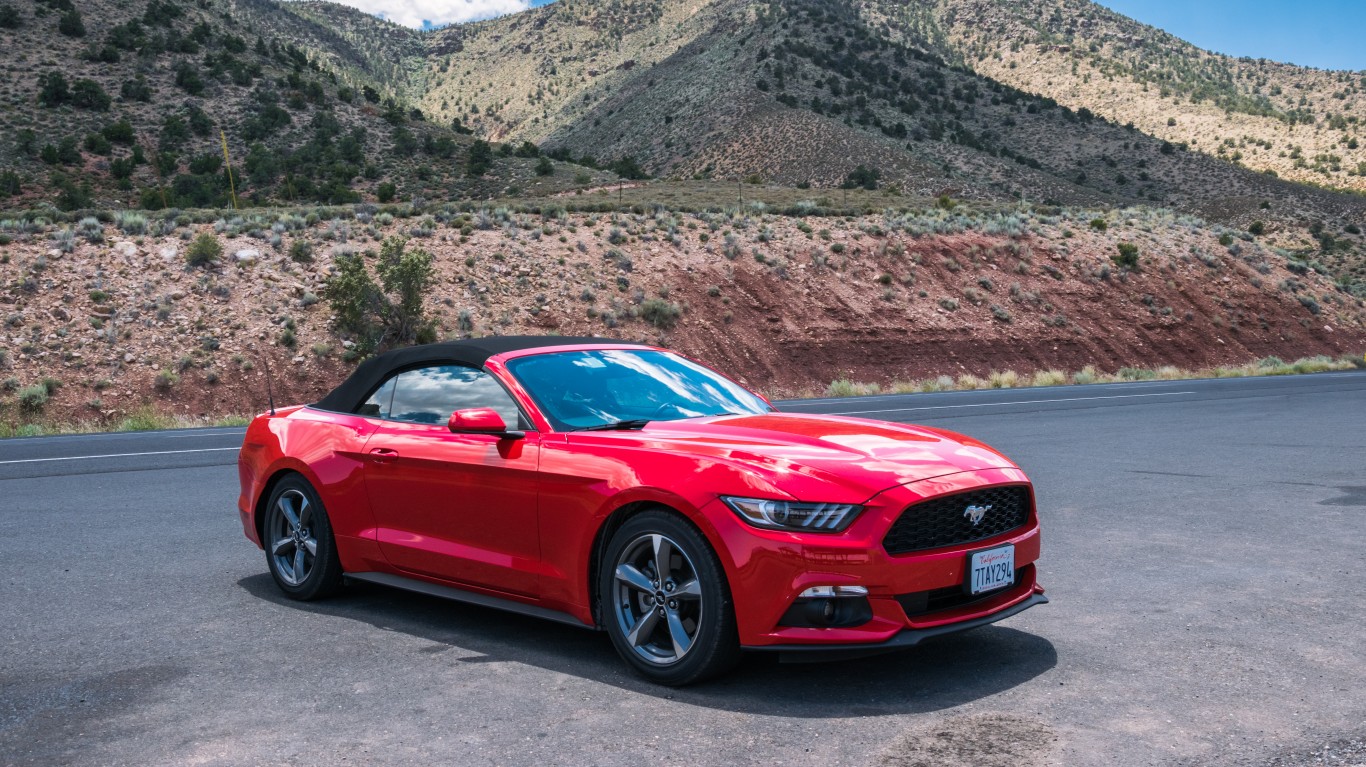
13. Ford Mustang
> Years in production: 1964-present
> Type: 2-door and 2-door hatchback
The Mustang is the brainchild of Ford executive Lee Iacocca. After introducing the so-called pony car at the 1964-1965 World’s Fair in New York, the two-door Mustang became one of the 1960s symbols of the mobile youth culture. The Mustang became Ford’s best selling car since the Model T in the 1920s.
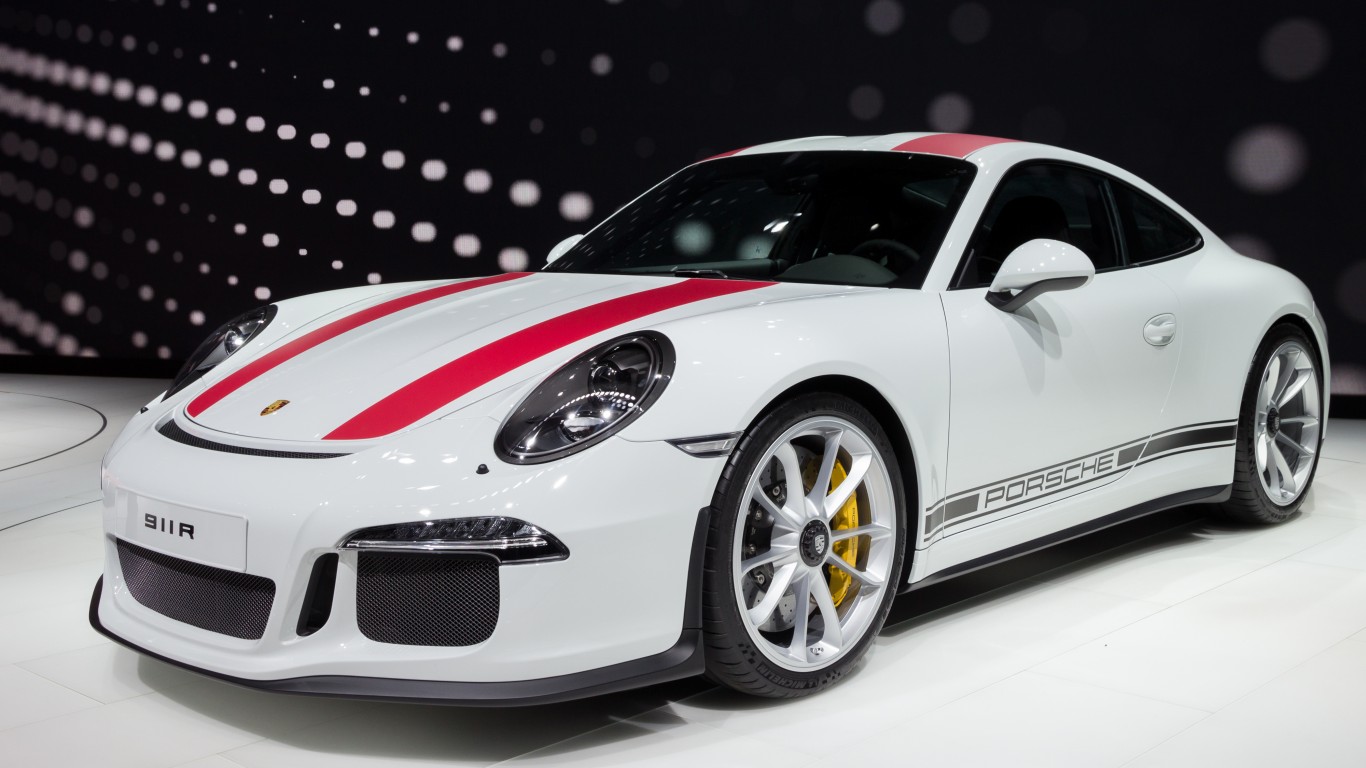
12. Porsche 911
> Years in production: 1963-present
> Type: Sports car
The Porsche 911 is the embodiment of German automotive engineering. The sports car surpassed the 1 million mark in number of cars manufactured in 2017. More than half of Porsche’s race wins were with this rear-engined legend. The company claims that 70% of the Porsche 911s sold are still on the road.
[in-text-ad]
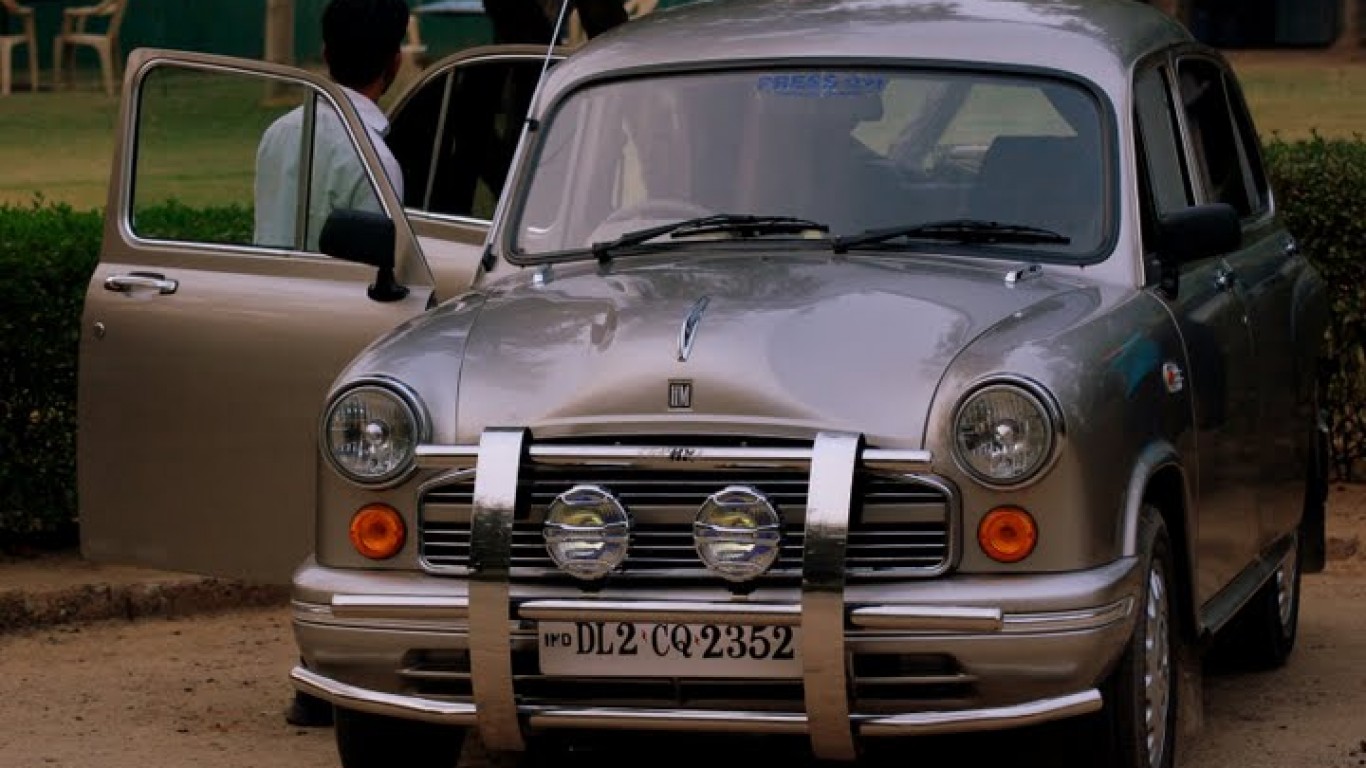
11. Hindustan Ambassador MK Series
> Years in production: 1958-2014
> Type: Saloon car
The Hindustan Ambassador MK Series was an iconic car in India. The sturdy, stately vehicle, whose roots are in the United Kingdom, was the vehicle of choice of politicians and celebrities before it ceased production in 2014.
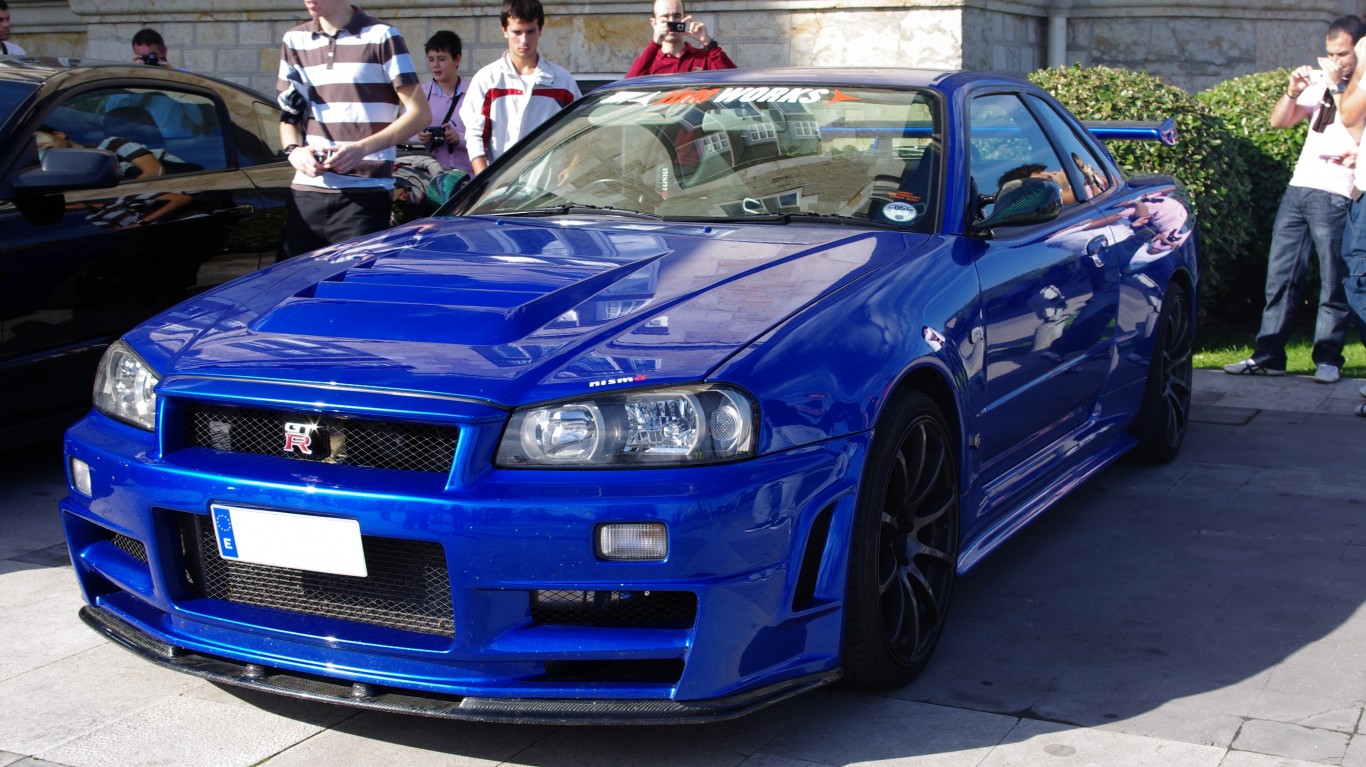
10. Nissan Skyline
> Years in production: 1957-present
> Type: Race car
The Nissan Skyline began as a modest four-door sedan and five-door station wagon in 1957 and evolved into more of a sports car. Starting in 1969, the Skyline dominated Japan’s touring car races, winning 52 races in its first three years of competition.
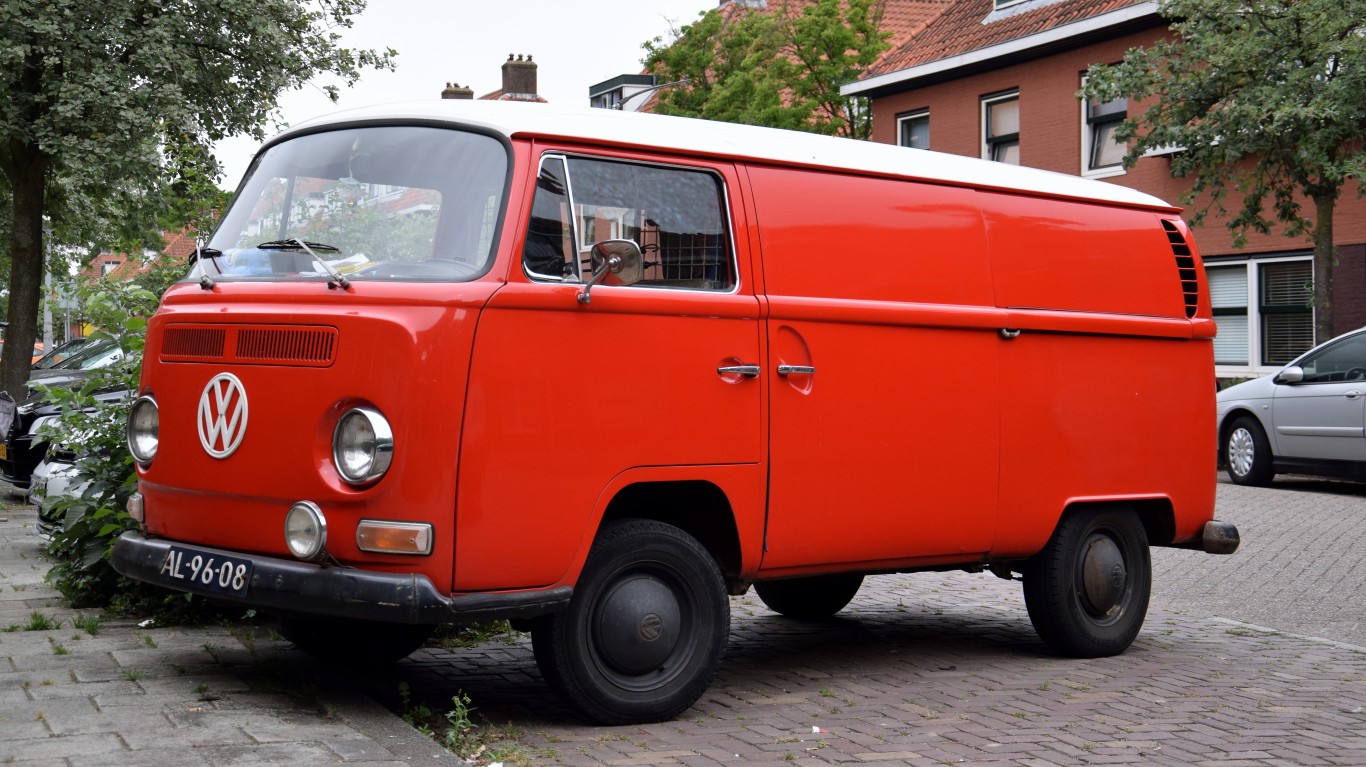
9. Volkswagen Type 2
> Years in production: 1949-2013
> Type: Van
Few vehicles are more recognizable than the Volkswagen Type 2. It’s gone by many names — the transporter, the microbus, and the camper. It was a four-wheeled canvas for hippie artists in the 1960s. It was used by domestic terrorists to kidnap heiress Patty Hearst in 1974. And it had a starring role in the movie “Little Miss Sunshine” as the dysfunctional mode of transportation for an extended family going to a children’s beauty pageant. Like its VW Beetle brethren, production of the venerable Type 2 has ceased.
[in-text-ad-2]
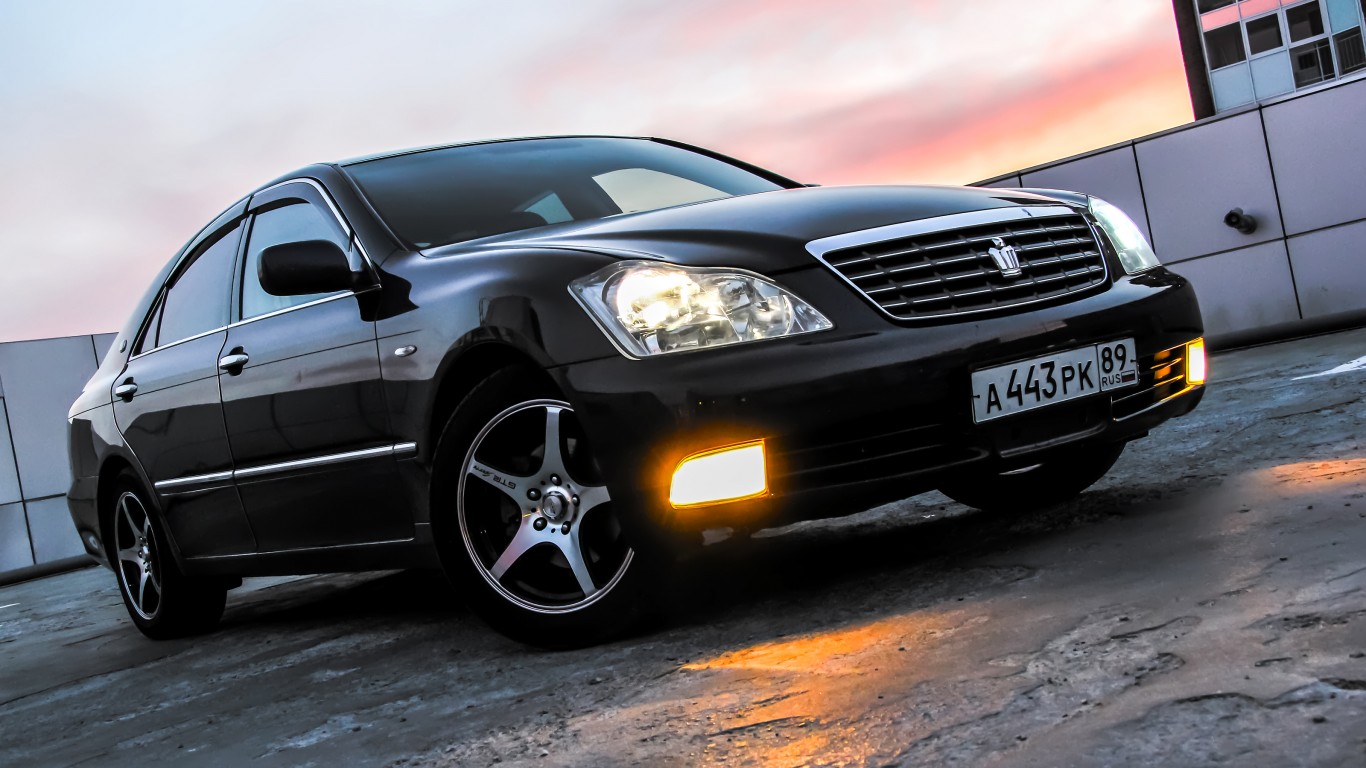
8. Toyota Crown
> Years in production: 1955-present
> Type: Luxury sedan
The Crown is one of Toyota’s largest sedans for the Japanese market and is in its 15th generation. The Crown has been a luxury mainstay in Japan, but most of its owners today are in their 60s. The challenge for Toyota now is to make the Crown desirable for younger buyers.
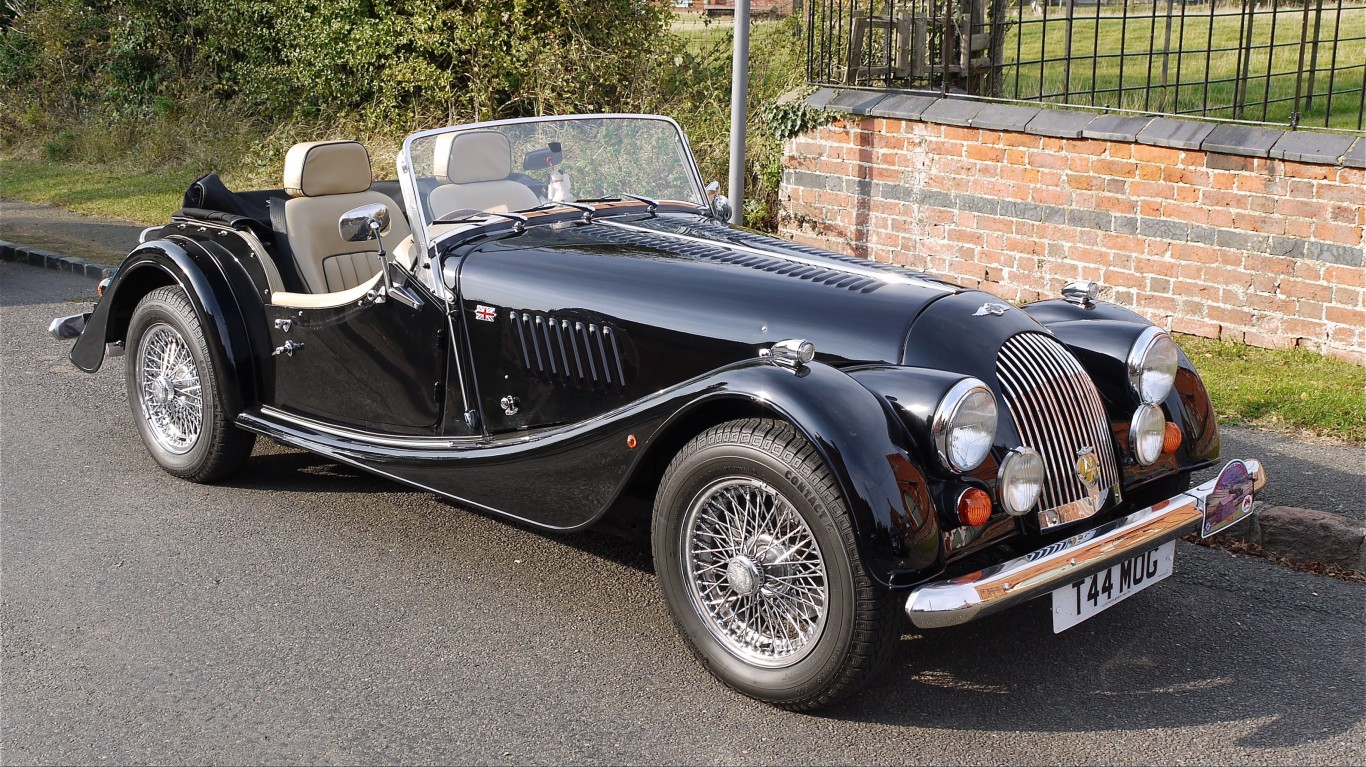
7. Morgan 4/4
> Years in production: 1955-present
> Type: Sports car
The Morgan 4/4 is a handmade British sports car. Though it was originally launched in 1936, its production was interrupted by World War II. Production resumed after the war. The Morgan 4/4 was the first four-wheel vehicle Morgan Motor Company built.
[in-text-ad]
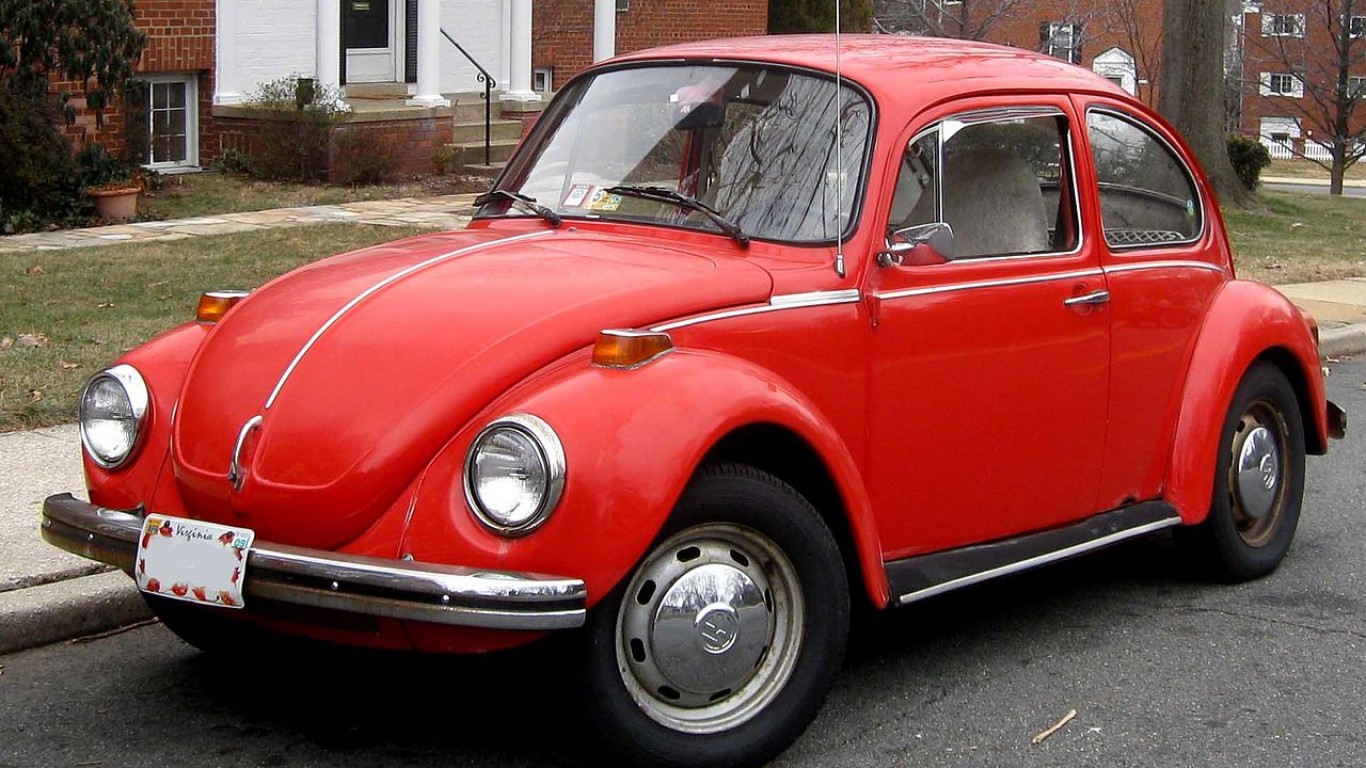
6. Volkswagen Beetle
> Years in production: 1938-2003
> Type: Economy car
The Volkswagen Beetle used to be the first car you owned. Beloved by filmgoers in the movie “The Love Bug” in the 1960s, the Beetle reached U.S. shores after the Second World War. Its beginnings can be traced back to 1933, when German dictator Adolf Hitler wanted to create a “people’s car” for the German public. It went into production five years later. The new Beetle coupe and convertible feature a 2.0-liter turbo engine and Consumer Reports said cars have “roomy-enough interior and a decent driving experience.”
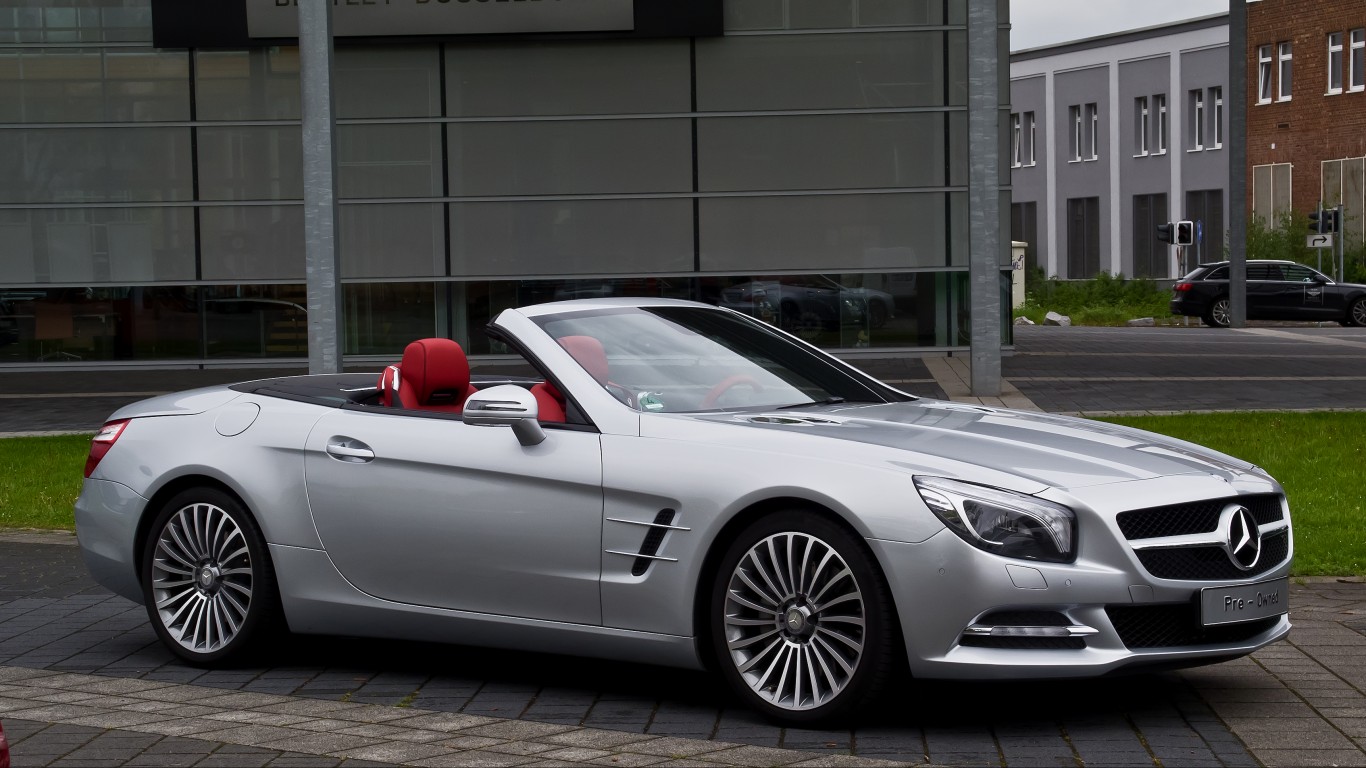
5. Mercedes SL
> Years in production: 1954-present
> Type: Sports car
Sales of the venerable roadster, whose early models featured gullwing doors, have slipped in recent years. The Mercedes SL has nevertheless retained its image as an elegant convertible.
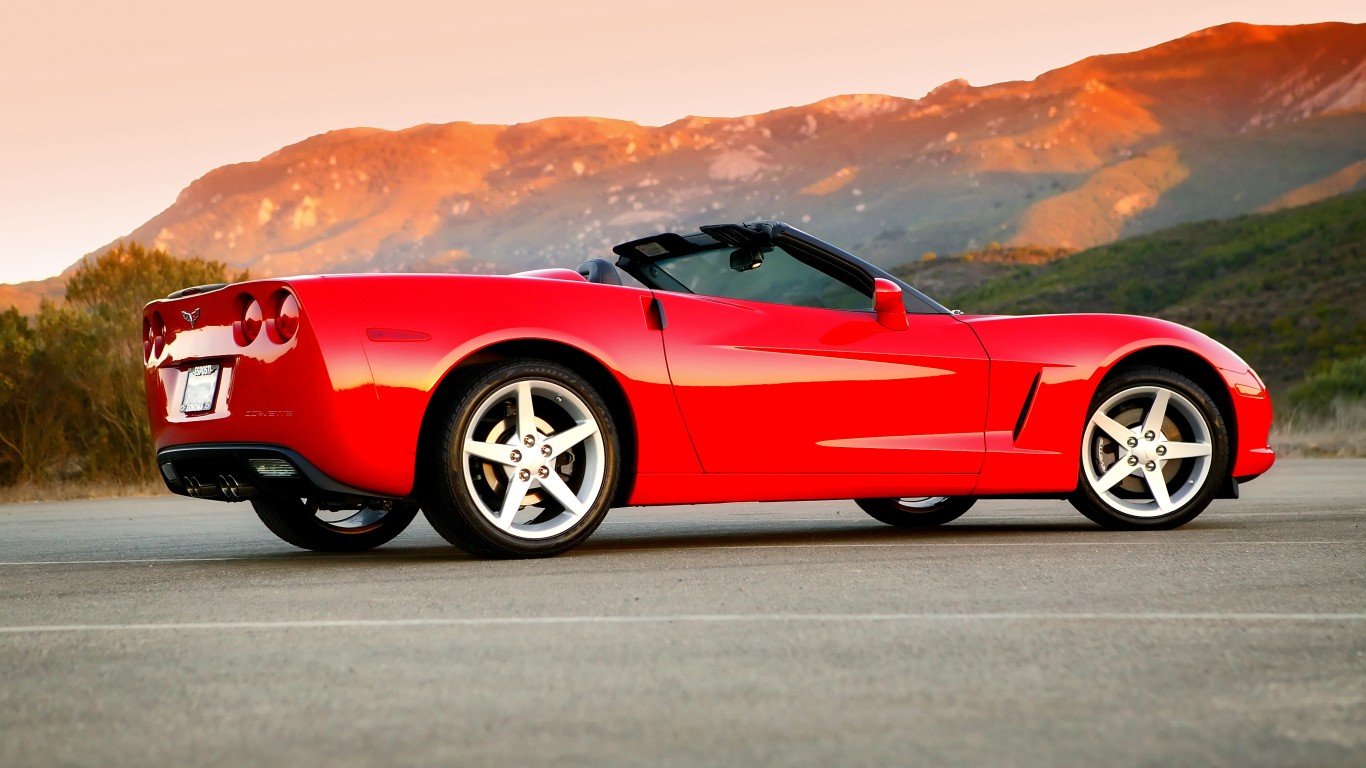
4. Chevrolet Corvette
> Years in production: 1953-present
> Type: Sports car
The legendary Corvette launched the muscle car phenomenon in the 1950s. Power, personality, and performance made the Corvette the preeminent sports car of its generation. The Corvette even has its own museum — the National Corvette Museum in Bowling Green, Kentucky, opened in 1994.
[in-text-ad-2]
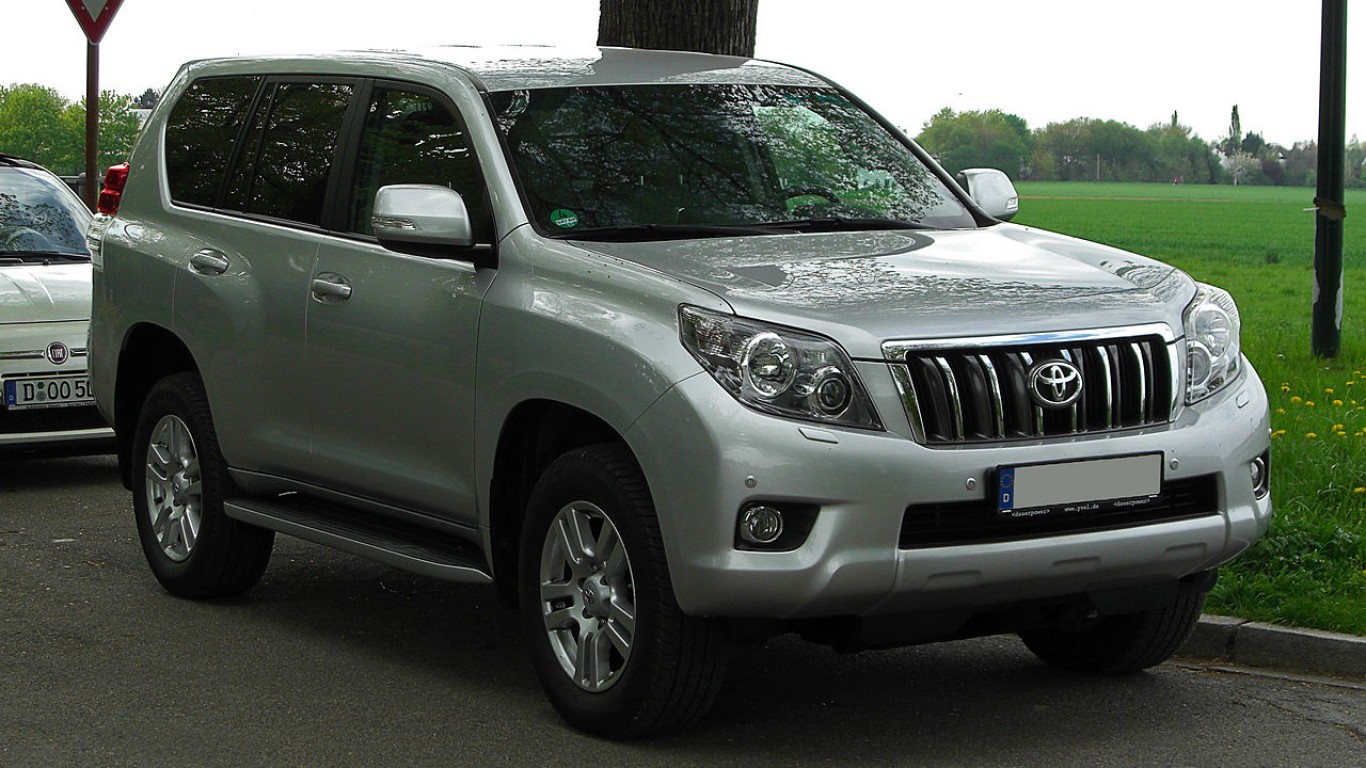
3. Toyota Land Cruiser
> Years in production: 1951-present
> Type: Luxury SUV
The longest-running Toyota model is an SUV, the Land Cruiser. Over time, the vehicle has evolved from a strictly utilitarian mode of transportation into an off-road luxury vehicle.
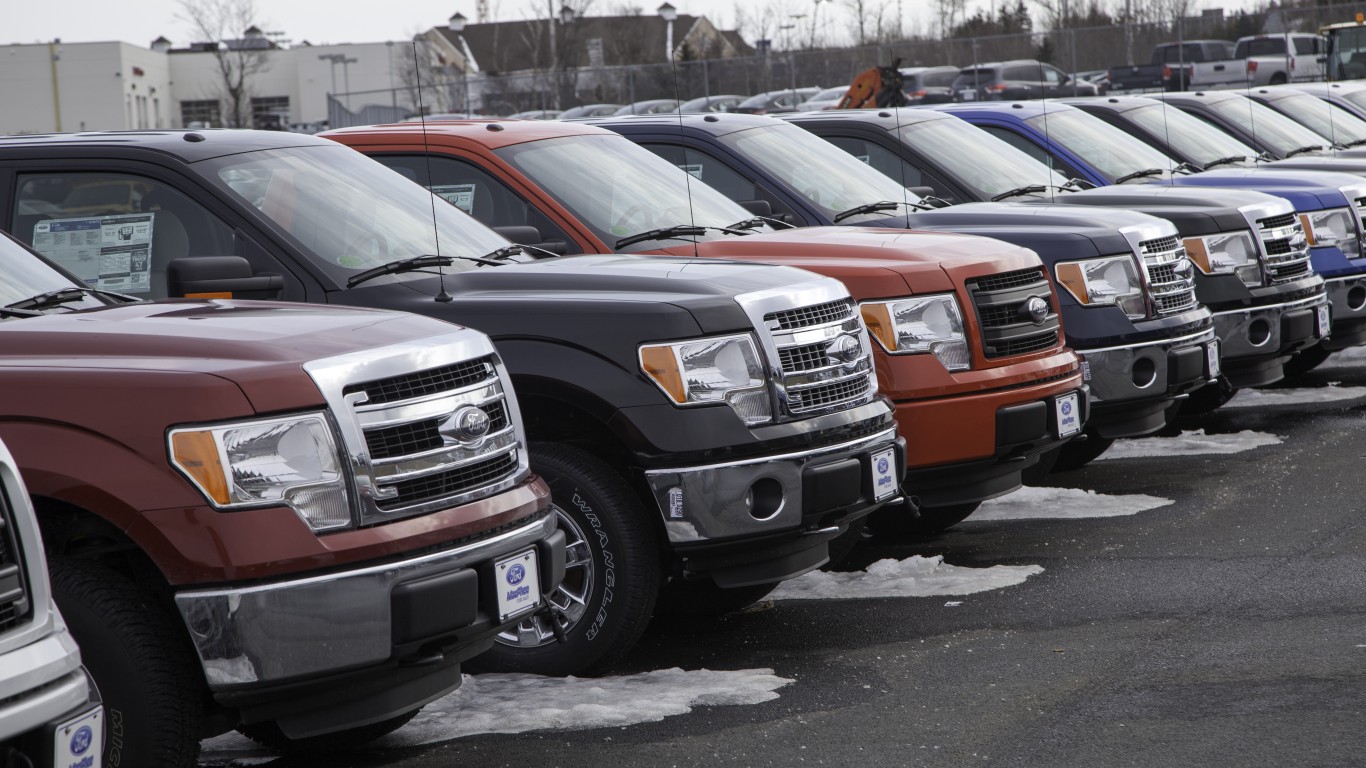
2. Ford F-Series
> Years in production: 1948-present
> Type: Pickup truck
Ford has been building trucks since the days of the Model T. In fact, the first Ford truck was called the Model TT, built in 1917. The Ford F-150 is the company’s flagship truck since its launch in 1948, and is its best selling truck from the F-Series.
[in-text-ad]
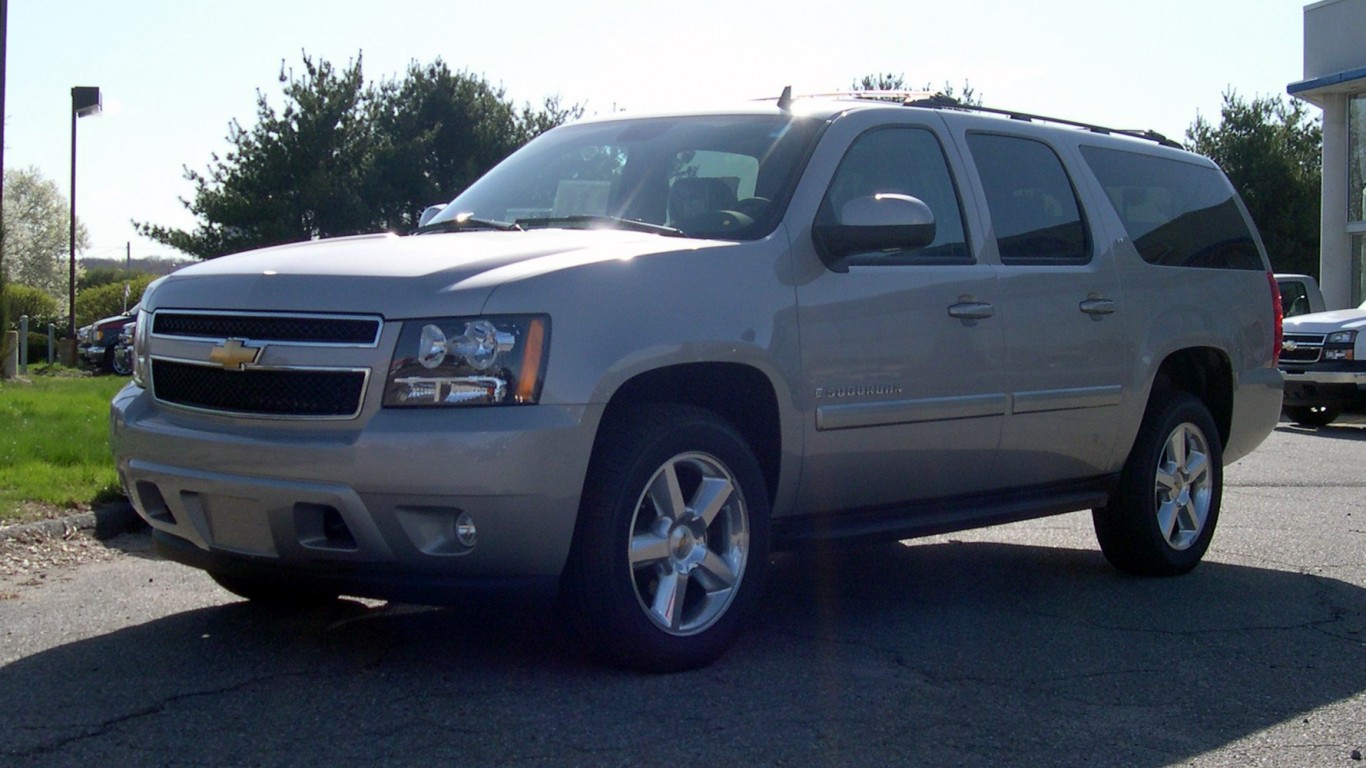
1. Chevrolet Suburban
> Years in production: 1935-present
> Type: SUV
The original Chevrolet Suburban was a station wagon placed on a truck chassis. The vehicle was used for military transport in World War II. Now in its 12th generation, the eight-seat Suburban is among the oldest SUVs.
Cash Back Credit Cards Have Never Been This Good
Credit card companies are at war, handing out free rewards and benefits to win the best customers. A good cash back card can be worth thousands of dollars a year in free money, not to mention other perks like travel, insurance, and access to fancy lounges. See our top picks for the best credit cards today. You won’t want to miss some of these offers.
Flywheel Publishing has partnered with CardRatings for our coverage of credit card products. Flywheel Publishing and CardRatings may receive a commission from card issuers.
Thank you for reading! Have some feedback for us?
Contact the 24/7 Wall St. editorial team.
 24/7 Wall St.
24/7 Wall St.

